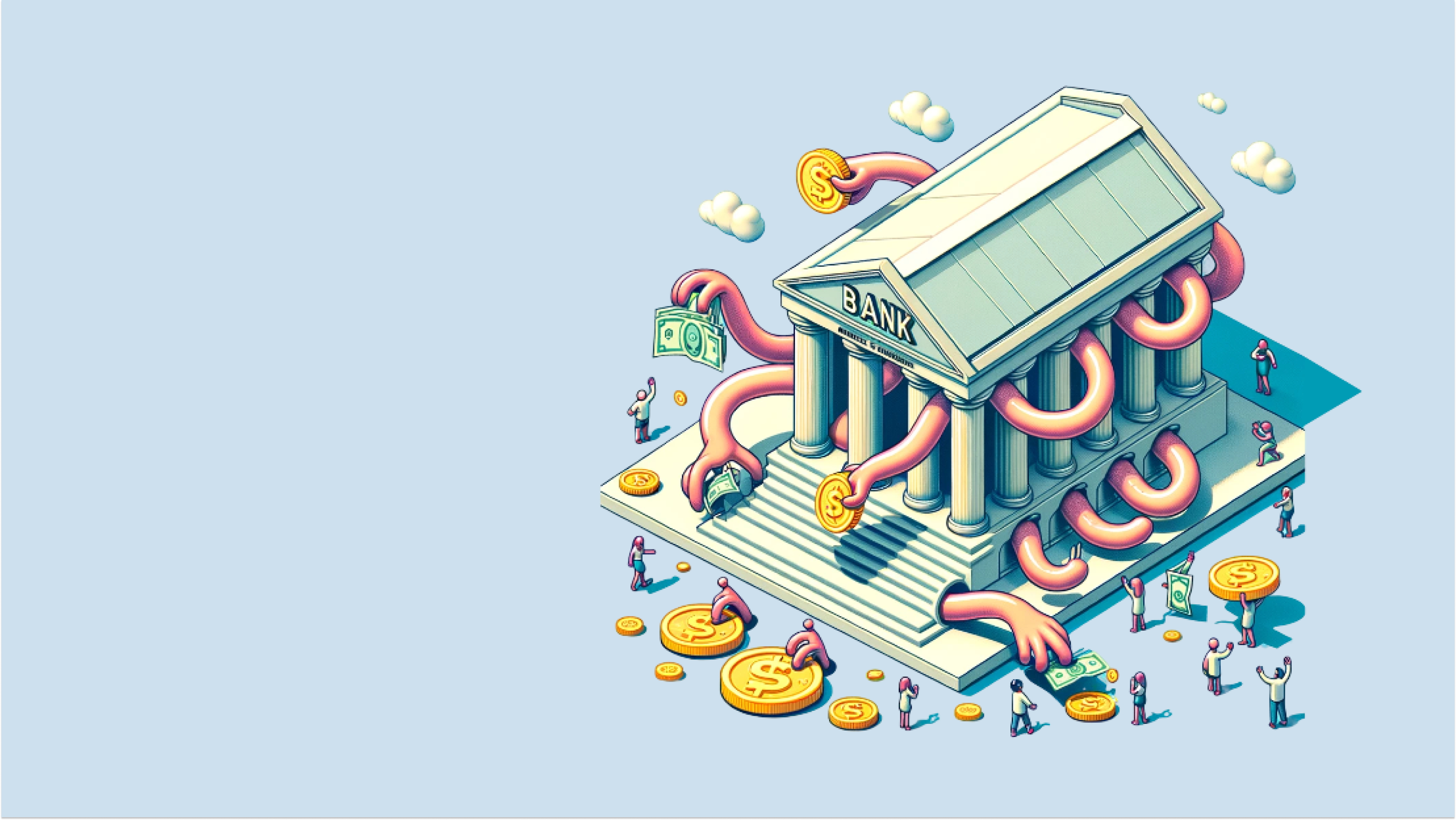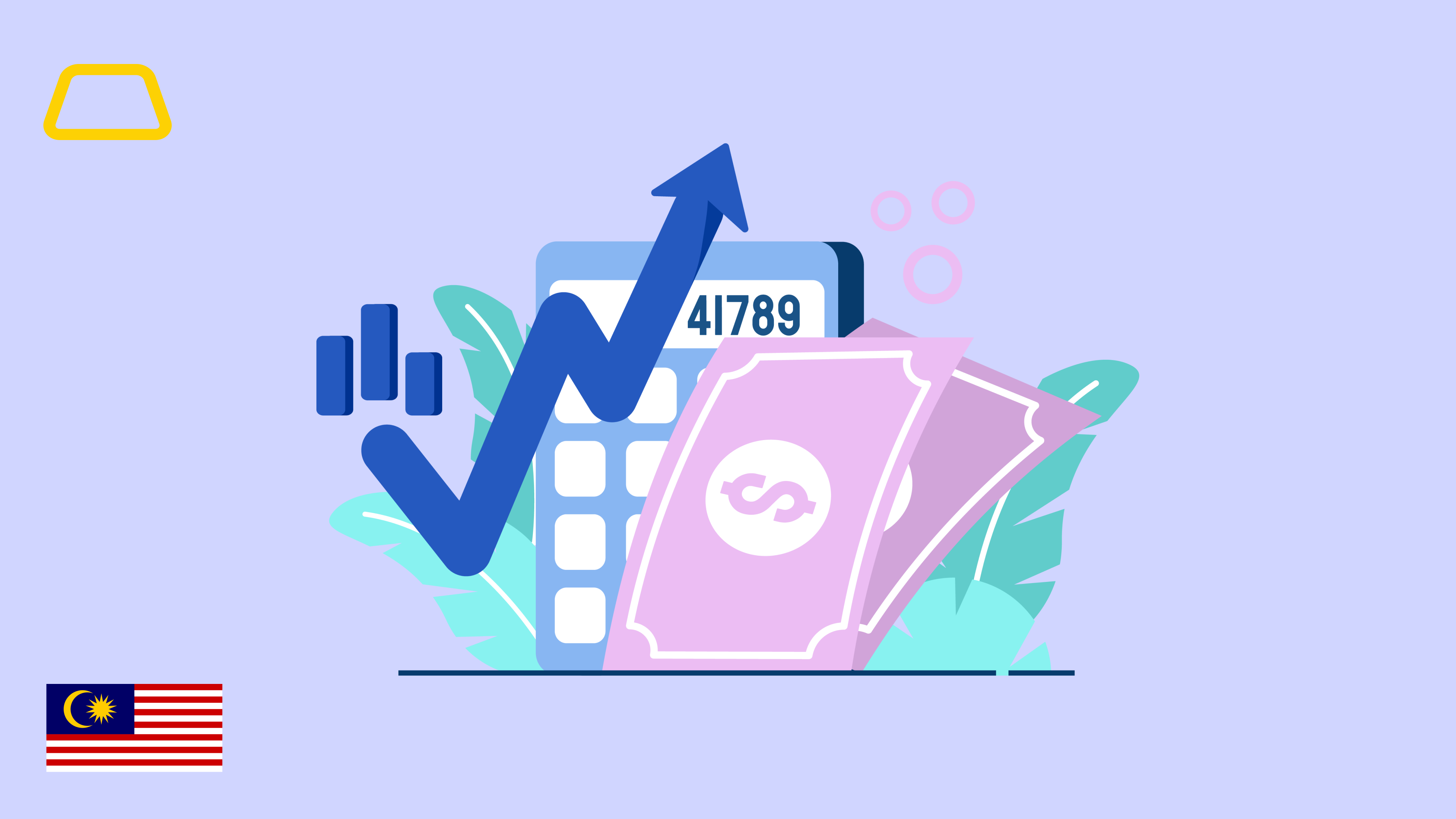Are Islamic banks really riba-free?

In this day and age when almost everyone we know has a bank account, we sometimes take it for granted to understand the nature of this institution that safeguards our wealth and money. Have we ever stopped to ask, is my savings in the bank account really riba-free?
وَمَآ ءَاتَيْتُم مِّن رِّبًۭا لِّيَرْبُوَا۟ فِىٓ أَمْوَٰلِ ٱلنَّاسِ فَلَا يَرْبُوا۟ عِندَ ٱللَّهِ ۖ وَمَآ ءَاتَيْتُم مِّن زَكَوٰةٍۢ تُرِيدُونَ وَجْهَ ٱللَّهِ فَأُو۟لَـٰٓئِكَ هُمُ ٱلْمُضْعِفُونَ
📖 Riba in the Quran
“That which you lay out for increase through the property of (other) people, will have no increase with Allah; but that which you lay out for charity seeking the countenance of Allah (will increase); it is those who will get a recompense multiplied”.
Sura Ar-Rum, ayah 39
The word riba means excess that originates for the thing itself. When applied to such a thing as money, it means that one shall not exchange RM 1 for RM 2. Which makes sense right?
More than 92% of Malaysians save their money at the bank, and those who are Muslims would usually be offered an Islamic Account, often by a bank which also has a conventional window. Although these Islamic Accounts proclaimed to be interest-free, with contracts that have been vetted by Sharia scholars, in fact an Islamic bank is just a bank at the end of the day.1
Debt is the lifeline of all banks, including Islamic ones
All registered commercial banks in Malaysia are regulated under the Bank Negara, which includes Islamic banks. Bank Negara, like any central bank in the world, sets up the ‘rule of the game’ on how all banks in the country should operate.
In summary, the rule allows banks to operate based on these basic principles:
- Accept deposits (cash that is saved with the banks by depositors like you and me)
- Maintain some of the deposit as a ‘reserve’ - so that cash can be returned to the depositor whenever it is requested
- Provide loans in value that is more than the reserve.
Although the first 2 points make so much sense and in fact shapes our thoughts and perceptions on how banks should be, the 3rd principle may seem a little odd.
In other words, for every Ringgit you deposit in a bank account, the bank is allowed to lend multiple times more, thus creating new money from nothing. This system is called the fractional reserve system, which allows for the creation of money backed by debt - amount owed by individuals and businesses (and therefore the economy) to the bank.

How do Banks make money?
So we now understand how banks function. But how do they make money? In a very simplified way - Banks derive income from the 2 parties that transact with it, the depositor and the borrower.
- To the Depositor, the bank is keeping their money safe. Rather than stashing the cash under one’s pillow, the banks issue a shiny plastic card that one can use in replace of cash, and all other convenient stuff like viewing the balance on your phone. All for a fee.
- To the Borrower, the bank will charge fees (in form of interest) based on the amount borrowed. And if the borrower can’t pay in time, there’s probably a penalty fee. If the borrower can’t pay at all? Well there could be something that the bank can seize, maybe a car or house.
When we understand how banks function and how it makes money, it is clear that it engages with the practice of riba when it creates money from nothing (the fractional reserve as mentioned above) and charges the borrower a fee on the loan. Unfortunately, all banks in Malaysia (including Islamic ones) practise this directly or indirectly and call it in another name such as profit. Others would obscure it with Islamic terms and tie multiple contracts into one. But that would be a discussion for another day.
A journey to a riba-free way to safeguard your money and wealth
عَنْ أَبِي هُرَيْرَةَ أَنَّ رَسُولَ اللَّهِ صَلَّى اللهُ عَلَيْهِ وَسَلَّمَ قَالَ لَيَأْتِيَنَّ عَلَى النَّاسِ زَمَانٌ لَا يَبْقَى أَحَدٌ إِلَّا أَكَلَ الرِّبَا فَإِنْ لَمْ يَأْكُلْهُ أَصَابَهُ مِنْ بُخَارِهِ
📖 Abu Huraira reported: The Messenger of Allah, peace and blessings be upon him, said,
“A time will surely come upon people in which none will remain but that he consumes usury. If he does not consume it, he will be afflicted by its dust.”
Source : Sunan Abī Dāwūd 3331
There’s no doubt that we would continue to need the services offered by the bank, both as a means to safeguard our wealth and the convenience of a reliable payment system that we use in our daily lives. However, since there are truly no banks that are free from the practice of riba, we must make a conscious decision to consider placing our wealth in an institution whose business model is based on equity (”musyarakah”) rather than debt.
Here are some tips you can adopt to make sure your hard-earned income and wealth is preserved without participating in riba:
- Minimise balance saved at the bank
Banks would pay interest or ‘profit rate’ to you based on the savings you have with them (called fixed deposit) which is anywhere between the range of 2.65% to 3.45% in Malaysia. This is what you’d want to stay away from as you’ll earn it based on riba. You will receive this if you maintain a minimum balance for a period of time (usually 6 -12 months).To avoid it, leave a balance below the minimum within the given period so it won’t accrue any interest. You can check this with your bank. - Decide how much you plan to spend and save.
Getting to know how much you’d spend and set aside as savings is not only a good financial discipline, but this way you’d know where would be the best place for you to park your money. - Use e-wallets or digital banking products for spending
To make sure you can spend freely and conveniently, most e-wallets or digital bank products would have the DuitNow feature which allows for payments to be made via QR. These services won’t usually pay out any interest, and if they do you can always opt out. - Save through syariah-compliant investing
To those who’ve never invested - this would be a giant leap and may sound daunting. But thankfully in this day and age, investing can be easy (in fact easier) than opening a bank account. Through investing, you’re making your money ‘work’ by placing them in the real economy - be it in helping a business grow (venture investing) or buying a property or gold in the hope that the price increases over time. The aspect of compounded returns in investing is very important when you plan to build your wealth through the act of saving over time. Also saving the money and not investing it, you would risk losing the value of the money to inflation.
Source: https://www.linkedin.com/pulse/investing-my-savings-halal-way-harris-irfan-trsyf/utm_source=share&utm_medium=member_android&utm_campaign=share_via
Risk Warning: Equity investments are not readily realisable and involve risks, including loss of capital, illiquidity, lack of dividends and dilution, and it should be done only as part of a diversified portfolio. Investments of this type are only for investors who understand these risks. You will only be able to invest in the company once you have met our conditions for becoming a registered member.
Please visit www.wahed.com/uk/ventures/risk for our full risk warning.
Risk Warning: As with any investment, a Wahed Invest Ltd investment puts your money at risk, as the value of your investment can go down as well as up. The tax treatment of your investment will depend on your individual circumstances and may change in the future. If you are unsure about whether investing is right for you, please seek expert financial advice.
Please visit www.wahed.com for our full terms and conditions
Maydan Capital Limited, trading as WahedX, is registered in England and Wales (Company No. 13451691), registered office: 87-89 Baker Street, London, W1U 6RJ, UK. Maydan Capital Ltd (FRN: 963613) is an appointed representative of Wahed Invest Ltd (FRN: 833225), an authorised and regulated firm by the Financial Conduct Authority.Wahed Invest Ltd. is registered in England and Wales (Company No. 10829012), registered office: 87-89 Baker Street, London, W1U 6RJ, UK and is authorised and regulated by the Financial Conduct Authority: FRN 833225.
Subscribe For More Islamic Finance Content
As with any investment, a Wahed Invest Ltd investment puts your money at risk, as the value of your investment can go down as well as up. The tax treatment of your investment will depend on your individual circumstances and may change in the future. If you are unsure about whether investing is right for you, please seek expert financial advice.
Wahed Invest LLC (Wahed) is a US Securities and Exchange Commission (SEC) registered investment advisor. Wahed Invest provides brokerage services to its clients through its brokerage partner Apex Clearing Corporation, a member of NYSE - FINRA - SIPC and regulated by the SEC and the Commodity Futures Trading Commission. Registration does not imply a certain level of skill or training. Wahed does not intend to offer or solicit anyone to buy or sell securities in jurisdictions where Wahed is not registered or a region where an investment practice like this would be contrary to the laws or regulations. Any returns generated in the past do not guarantee future returns. All securities involve some risk and may result in loss. Any performance displayed in the advertisements or graphics on this site are for illustrative performances only.
Disclaimer: Wahed Technologies Sdn Bhd ("Wahed") is a Digital Investment Manager (DIM) licensee issued by Securities Commission Malaysia (eCMSL/ A0359/2019). It is part of Wahed Inc. Wahed is authorized to conduct a fund management business that incorporates innovative technologies into automated portfolio management services offered to clients under a license issued pursuant to Schedule 2 of the Capital Markets Services Act 2007. All investments involve risks, including the possibility of losing the money you invest, and the track record does not guarantee future performance. The history of returns, expected returns, and probability projections is provided for informational and illustrative purposes, and may not reflect actual future performance. Wahed is not responsible for liability for your trading and investment decisions. It should not be assumed that the methods, techniques, or indicators presented in this product will be profitable, or will not result in losses. The previous results of any trading system published by Wahed, through the Website or otherwise, do not indicate future returns by that system, and do not indicate future returns that will be realized by you.
Wahed Invest Limited is regulated by ADGM’s Financial Services Regulatory Authority (“FSRA”) as an Islamic Financial Business with Financial Services Permission for Shari’a Compliant Regulated Activities of Managing Assets and Arranging Custody [Financial Permission No. 220065]. Our ADGM Registered No. is 000004971.
Wahed assumes no obligation to provide notifications of changes in any factors that could affect the information provided. This information should not be relied upon by the reader as research or investment advice regarding any issuer or security in particular. Any strategies discussed are strictly for illustrative and educational purposes and should not be construed as a recommendation to purchase or sell, or an offer to sell or a solicitation of an offer to buy any security. Furthermore, the information presented may not take into consideration commissions, tax implications, or other transactional costs, which may significantly affect the economic consequences of a given strategy or investment decision. This information is not intended as a recommendation to invest in any particular asset class or strategy or as a promise of future performance.
There is no guarantee that any investment strategy will work under all market conditions or is suitable for all investors. Each investor should evaluate their ability to invest long term, especially during periods of downturn in the market. Investors should not substitute these materials for professional services and should seek advice from an independent advisor before acting on any information presented. Any links to third-party websites are provided strictly as a courtesy. We make no representation as to the completeness or accuracy of information provided at these websites nor do we endorse the content and information contained on those sites. When you access one of these websites, you are leaving our website and assume total responsibility and risk for your use of the third-party websites.






